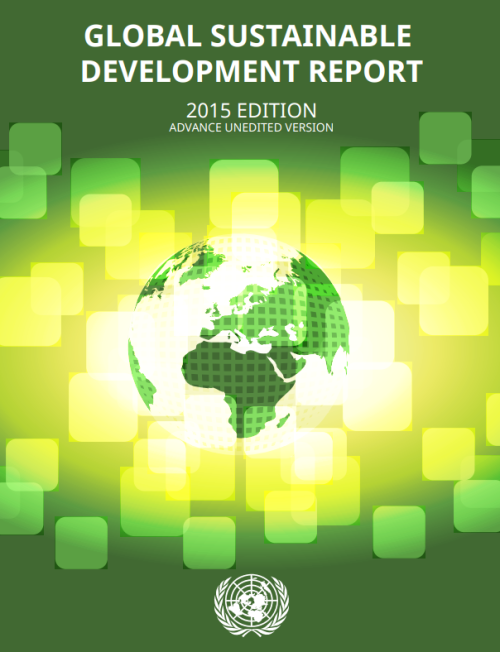
A new United Nations flagship report launched today finds that solutions to the challenges to people and planet must build on clear scientific findings in order to be sustainable. “The successful implementation of the new sustainable development agenda requires a strong scientific foundation that is understood by policymakers,” said Wu Hongbo, UN DESA’s Under-Secretary-General, referring to the proposed 17 sustainable development goals, scheduled for adoption in September in New York.
The 2015 Global Sustainable Development Report, an intergovernmental-mandated report on the science-policy interface for sustainable development, was presented to UN Member States at the High…
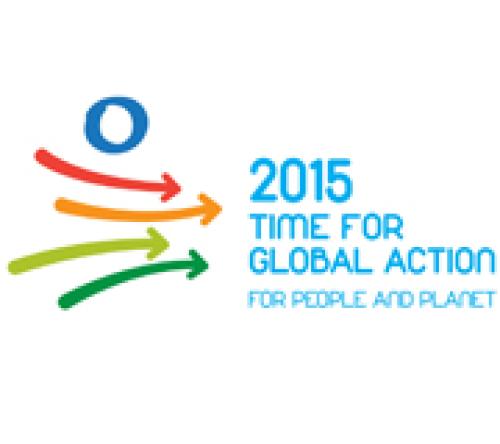
Calling for inclusive, agile and coordinated action to usher in an era of sustainable development for all, Secretary-General Ban Ki-moon on 4 December presented the UN General Assembly with an advance unedited version of his “synthesis report,” which will guide negotiations for a new global agenda centred on people and the planet, and underpinned by human rights. The report was formally issued in the six official UN languages on 31 December 2014.
“Next year, 2015, will herald an unprecedented opportunity to take far-reaching, long-overdue global action to secure our future well-being,” Mr. Ban said as he called on Member States to be “innovative,…
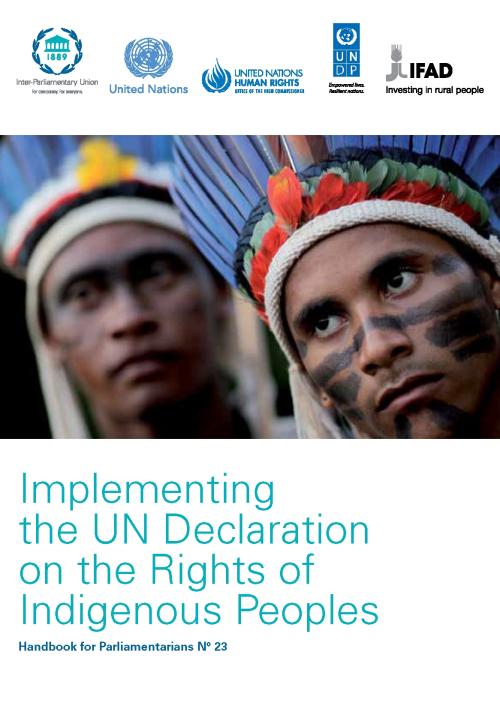
Parliaments play a central role in enacting legislation that recognizes indigenous peoples’ rights and adopting budgetary measures to implement those rights, both of which are critical enablers to drive the implementation of the UN Declaration at the national level. This handbook aims to be a practical instrument to enable parliamentarians around the world to understand indigenous peoples’ rights better and to provide practical ideas for the implementation of the UN Declaration on the Rights of Indigenous Peoples which defines the minimum standards necessary for the survival, dignity and well-being of indigenous peoples of the world.
The handbook presents good practices in…
Millions of people’s lives have improved due to concerted global, regional, national and local efforts to achieve the Millennium Development Goals (MDGs), which serve as the foundation for the next global development agenda, according to the report launched by the Secretary-General on 7 July 2014.
With many MDG targets already met on reducing poverty, increasing access to improved drinking water sources, improving the lives of slum dwellers and achieving gender parity in primary school, the report says many more targets are within reach by their 2015 target date. If trends continue, the world will surpass MDG targets on malaria, tuberculosis and access to HIV treatment, and the…
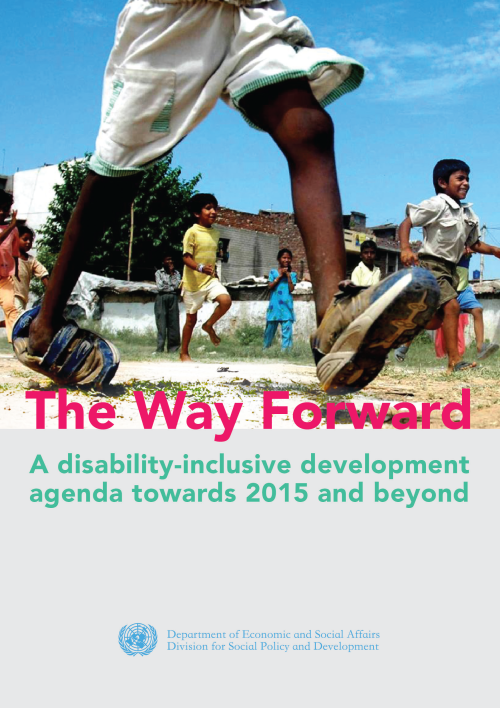
On 23 September 2013, the General Assembly convened the first ever High Level Meeting on “the Realization of the MDGs and other internationally agreed development goals for persons with disabilities.” During the opening segment, Member States unanimously adopted the Outcome Document, which is reproduced in this brochure.
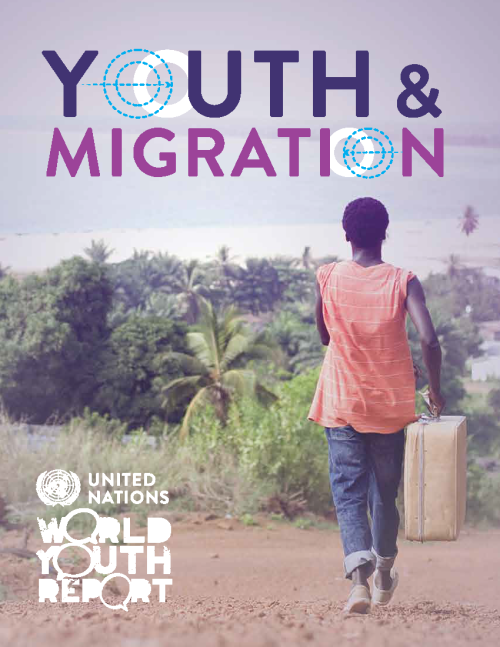
The 2013 World Youth Report offers a broad understanding of the situation of young migrants from the perspective of young migrants themselves. The report highlights some of the concerns, challenges and successes experienced by young migrants based on their own lives and told in their own voices.
The report focuses largely on the phenomena of international migration which increasingly has a significant impact on the origin, transit and destination countries and communities. The consequences are complex, context-specific and subject to change over time. The Report has been drafted in an interactive manner, allowing you to navigate chapters individually.
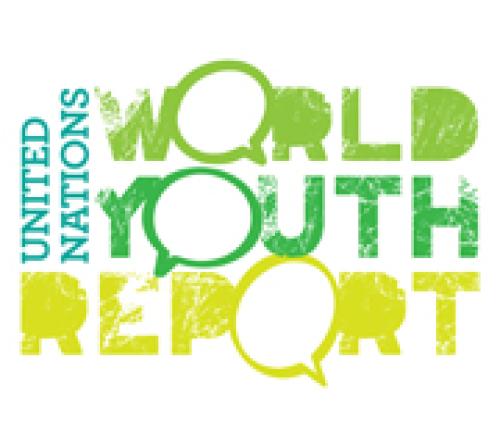
The report is based on the experiences of young people affected by migration and relates the stories of individuals as they move to new lands. About half of the young international migrants are women and girls, and 60 per cent of young international migrants live in developing countries. The report primarily focuses on the experiences of international migrants, but notes that many young people are internal migrants who move within their home countries.
The report outlines the global situation of young migrants by highlighting some of the concerns, challenges and successes experienced by young migrants as told in their voices taken from a series of online consultations and surveys…
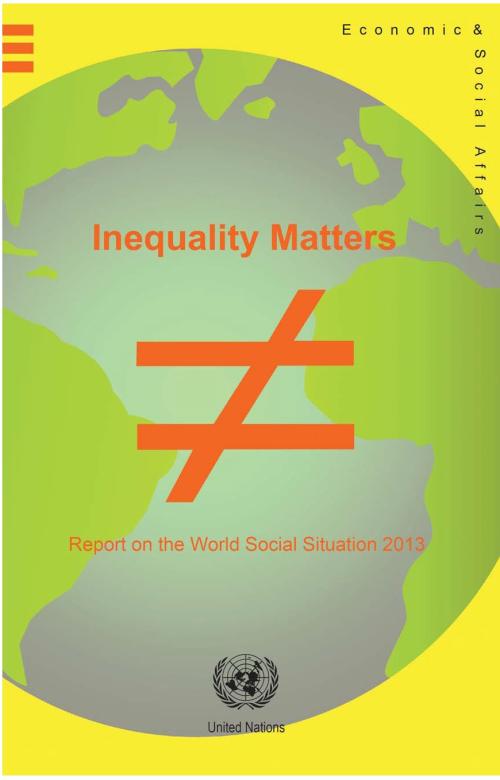
The 2013 Report on World Social Situation: Inequality Matters brings attention to inequality, with a particular focus on policies and the disadvantaged social groups. Tracing the recent trends and the consequences of inequality, the Report shows that inequality matters not only for people living in poverty, but also for the overall wellbeing of society at large.
The Report further demonstrates that growing inequality is neither destiny nor a necessary price to pay for economic growth. It explains the consequences of high inequality and further examines the experience of some countries that have defied the general trend and have managed to reduce inequality, showing that…
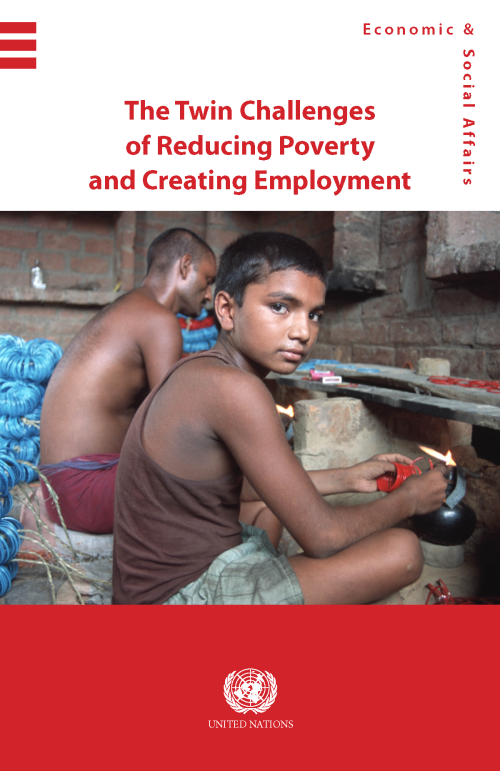
This E-publication is based on papers presented at two Expert Group Meetings (jointly organized by DSPD and the ILO) that brought together specialists to undertake a review of progress in eradicating poverty and to analyse policy responses to the global jobs crisis in different countries and regions of the world. It calls for a reorientation of macroeconomic policies from the current heavy emphasis on short-term stability to the promotion of sustained, inclusive and equitable growth. It stresses the need for the integration of social and economic policies to enable the attainment of people-centred development outcomes.
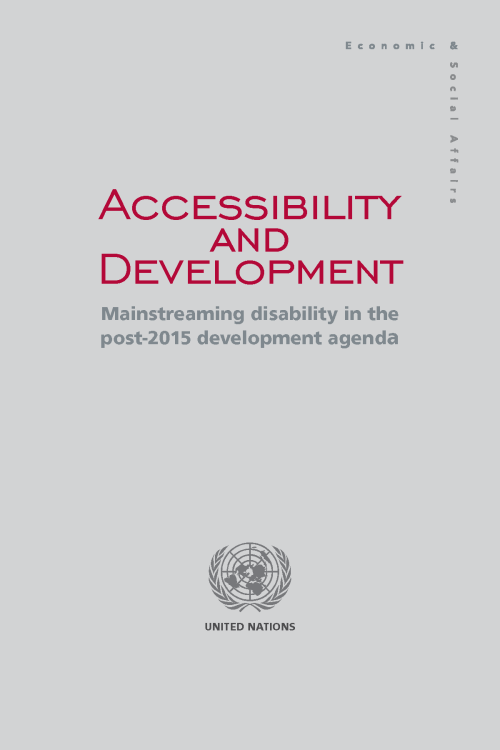
The publication reviews the concept of accessibility and its role in achieving inclusive and sustainable development. It propositions that accessibility be, not only a means and a goal of inclusive development, but also an enabler of an improved, participative economic and social environment for all members of society, including persons with disabilities.
Three key issues are addressed in the publication: (1) Accessibility in the context of human rights and development; (2) accessibility in policy and practice; and (3) accessibility and a disability-inclusive post-2015 development agenda.
The publication reviews good practices and lessons learned from both top-down and…
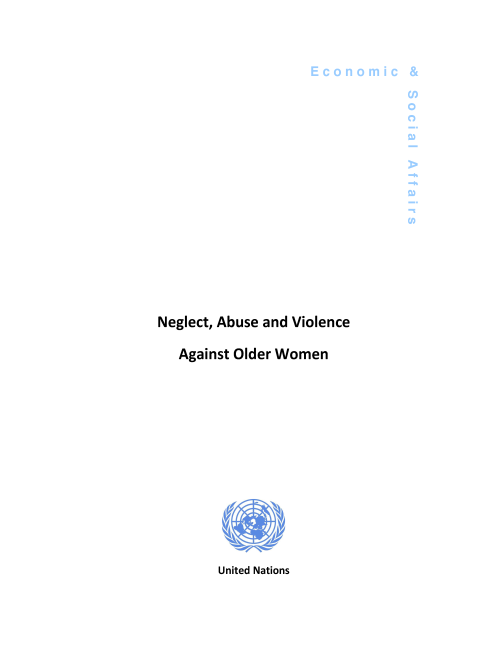
The objective of the Madrid International Plan of Action on Ageing (MIPAA) was the elimination of all forms of neglect, abuse and violence against older persons (MIPAA, 2002).
The United Nations Department of Economic and Social Affairs (UN-DESA), together with its focal point on ageing in the Division for Social Policy and Development (DSPD), began a discussion based on current research, available data and the terminology used in academic circles to describe and classify violence and abuse against older women. The majority of academic research and discourse has been conducted in developed countries, and agreement on terminology and meanings has—by no means—been clear or agreed.…
The experience from the Millennium Development Goals has shown that well-defined, objectively measurable indicators can help to maintain focus on internationally agreed development goals and targets, while keeping the world informed of achievements, problem areas and emerging issues.
Looking ahead to the post-2015 development agenda, it will be important to develop a robust monitoring system that draws on traditional data collection methods and innovations in statistics and data collection to develop a monitoring framework that can measure progress on the various thematic areas.
While it is still too early to define a set of indicators and targets for the development…
 Welcome to the United Nations
Welcome to the United Nations